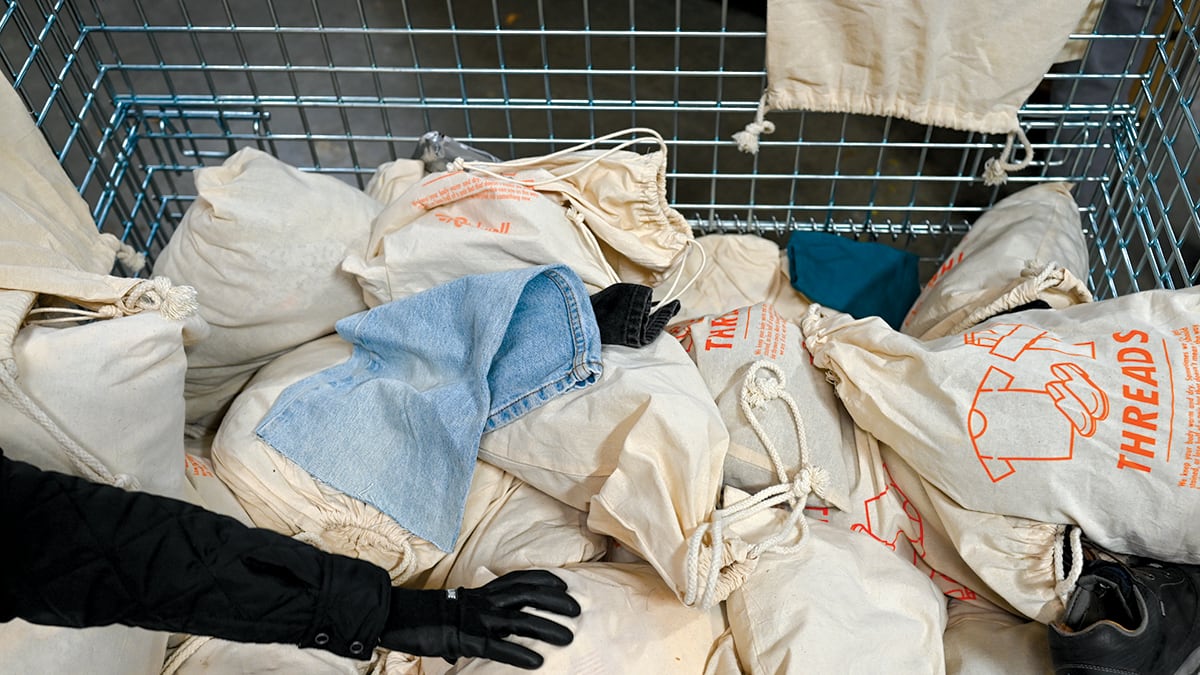Ridwell, the embattled recycling subscription company that was kicked out of Washington County earlier this year due to pressure from franchised trash haulers, filed a second lawsuit against the county June 21.
The lawsuit, filed in Washington County Circuit Court, seeks to stop a near-copycat program the county will launch July 1 exclusively for its franchised trash haulers. Ridwell alleges the new program violates state law.
On Thursday, one of the county’s trash haulers—Pride Disposal—filed a motion to intervene in Ridwell’s lawsuit. That means it seeks to join Washington County in waging a defense against the lawsuit.
Ridwell also seeks preliminary injunctive relief that would enable it to continue operating in the county until the legal spat is resolved.
The feud started over a year ago when trash haulers in Washington and Clackamas counties and Portland attempted to oust Ridwell from operating within its territory, alleging the Seattle-based startup was infringing on the haulers’ exclusive franchise rights. (The Portland City Council voted unanimously to allow Ridwell to operate in September 2021.)
The battle peaked in January when Ridwell pulled out of Washington County after receiving a cease-and-desist letter from the county threatening fines if it continued to serve customers. Soon after voluntarily departing, Ridwell sued Washington County in federal court, alleging the county was violating state law by prohibiting Ridwell’s service when it picks up items the franchised trash haulers don’t currently collect.
That will soon change.
This spring, the county created and approved a close replica of Ridwell’s program. Customers place separated items such as light bulbs, plastic film and clamshells into separate satchels and haulers pick them up on a regular basis. The program is called Recycle+. (Ridwell is allowed to serve customers until the program launches.)
With the launch less than a week away, Ridwell is making another attempt at blocking the county’s efforts.
In the second lawsuit filed on Tuesday, Ridwell is taking a different tack and appealing to a different state statute than it did in its first lawsuit: a law that forbids haulers from charging more for a recycling service if it would cost less to just throw that item in the dump.
“Oregon law expressly prohibits franchise waste haulers from charging more to collect materials for recycling than for collecting the same materials for disposal in a landfill,” Ridwell’s attorneys wrote in the lawsuit. “As of July 1, 2022, franchise waste haulers in the County will be required to offer collection of additional recyclable materials to certain households, but households will be charged more to recycle those materials than they are charged to send them to the landfill. This clearly violates state law and should be enjoined on that ground.”
Pride Disposal hit back today in its motion to intervene.
Pride’s attorneys argued that because the items in its soon-to-launch recycling program aren’t considered “recyclable materials” the law doesn’t apply.
“As Ridwell would have it, only Ridwell can charge to collect [hard-to-recycle] items, but, if the County permits regulated franchise haulers to charge to collect [those] items, that violates state law. Ridwell is flat wrong,” Pride’s motion reads. “[The law] has no application to Recycle+ because the materials collected in Recycle+ are not ‘recyclable materials’ under that statute.”
For over a year, Ridwell and the counties that have tried to shut the company out have jousted over the definition of two words: recyclable materials.
Kristin Leichner, president of Pride Disposal, submitted comments to the judge in the case, repeating the points that haulers have been making for over a year: that Ridwell can cherry-pick its customers and skirts regulatory oversight, leading to little accountability. (Ridwell has routinely contested both points.)
“To suggest our program will harm Ridwell’s 1,900 customers is disingenuous—if anyone is harmed, it is the 59,000 residents of Washington County that would be denied the new expanded recycling option if Ridwell has its way,” Leichner tells WW.
Caleb Weaver, Ridwell’s vice president of public affairs, says conflating those two numbers—one which is the number of Ridwell subscribers and the other which is the number of county residents who could sign up for Recycle+—is “misleading.”
“The fact is, if Pride gets its way, households will lose access to expanded recycling opportunities,” Weaver says.
The two attorneys will make their arguments for and against the preliminary injunction in front of a judge next week.
Ridwell expanded into Minneapolis and Austin earlier this year, widening its national footprint.

